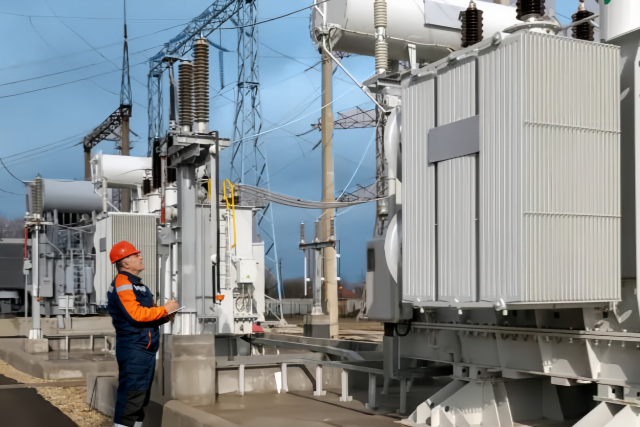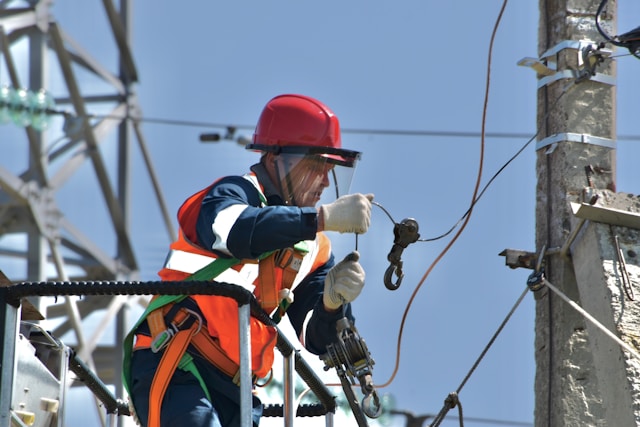A soil resistivity test kit measures the resistance of soil to electrical current, essential for designing grounding systems in electrical installations. This kit helps ensure safety, system reliability, and adherence to regulatory standards.
What Is a Soil Resistivity Test Kit and How Does It Work?
A soil resistivity test kit consists of electrodes, cables, and a resistivity meter that measures how much the soil resists electrical current flow. By driving electrodes into the soil and applying a current, the kit records resistance values to determine soil resistivity, critical for grounding system design to prevent electrical hazards.
Chinese manufacturers and OEM factories supply these kits to wholesalers and suppliers worldwide, focusing on precision and durability for industrial applications.
How Is Soil Resistivity Testing Performed Using These Kits?
Testing involves inserting four equally spaced electrodes into the soil and applying a current between the outer electrodes while measuring voltage between the inner ones. This follows the Wenner or Schlumberger method for accurate measurement. Data is then used to calculate soil resistivity at varying depths, aiding grounding engineers in system design.
OEM suppliers in China customize kits for specific industry requirements, ensuring user-friendly interfaces and robust field performance.
Which Industries Benefit Most from Using a Soil Resistivity Test Kit?
Industries heavily reliant on grounding systems benefit, including:
Electrical power plants and substations
Telecommunication towers and infrastructure
Renewable energy (solar and wind farms)
Construction and civil engineering
Chinese factories produce wholesale kits targeted at such industries, offering standards-compliant and factory-tested equipment.
Why Is Soil Resistivity Important for Electrical Grounding Systems?
Soil resistivity directly influences grounding electrode effectiveness. Low resistivity means better current dissipation, improving safety and equipment protection. High resistivity soils require alternative grounding designs or supplemental materials, making accurate resistivity measurement vital for reliable electrical systems.
Manufacturers such as Wrindu prioritize high-accuracy instruments that help OEM clients optimize system safety based on precise resistivity data from testing kits.
When Should You Use a Soil Resistivity Test Kit?
Use soil resistivity test kits during:
Initial site surveys for new electrical installations
Grounding system maintenance and troubleshooting
Upgrading or expanding substations and power plants
Compliance verification per local electrical codes, especially in China’s evolving infrastructure market
OEM suppliers provide these kits for continuous and reliable field use to maintain optimal grounding performance.
Where Does Wrindu Fit in Soil Resistivity Test Kit Manufacturing?
Wrindu, a top-tier Chinese manufacturer and OEM, specializes in designing and producing reliable soil resistivity test kits. Their products combine innovation and precise engineering, backed by ISO9001 and IEC certifications, serving wholesale customers globally with customizable solutions to meet diverse client needs.
Wrindu’s strong factory capabilities and R&D investment position them as a preferred supplier for tests vital to grounding system safety.
Can Soil Resistivity Test Kits Measure Variable Soil Conditions?
Yes, advanced kits use adjustable probe spacing and enhanced data logging to measure resistivity at different depths and account for soil moisture, temperature, and composition changes, offering comprehensive subsurface electrical characterization.
Custom OEM models from Chinese factories like Wrindu include user-friendly software for data analysis to support engineering decision-making.
Does Wrindu Offer Custom Soil Resistivity Test Kit Solutions?
Wrindu provides tailored soil resistivity test kits designed to meet specific industrial and regulatory requirements. Their OEM manufacturing integrates cutting-edge sensors and intuitive interfaces, enhancing accuracy and simplifying field operation for electrical engineers and technicians worldwide.
Through close cooperation with wholesale distributors, Wrindu ensures global availability and localized technical support.
Wrindu Expert Views
“Soil resistivity testing is foundational for effective electrical grounding design. At Wrindu, we integrate advanced measurement technology with rugged hardware to meet the practical challenges faced by engineers and technicians in the field. Our soil resistivity test kits deliver precise, repeatable results that help safeguard power infrastructure integrity, especially in regions like China where rapid industrial growth demands reliable solutions. We strive to empower OEM and factory clients with equipment that enhances safety and efficiency worldwide.”
Soil Resistivity Test Kit Features Comparison
| Feature | Standard Kit | Wrindu Custom OEM Kit |
|---|---|---|
| Measurement Method | Wenner or Schlumberger | Adjustable probes + multi-method support |
| Probe Spacing | Fixed | Adjustable for depth profiling |
| Data Logging | Basic | Advanced with software integration |
| Durability | Moderate | Industrial grade, IP65+ rated |
| User Interface | Manual controls | Digital touchscreen with guided menus |
Summary
Soil resistivity test kits are essential tools for measuring soil electrical resistance, vital in designing safe and efficient grounding systems. Chinese manufacturers and OEMs like Wrindu produce high-quality, customizable kits that address diverse industrial needs. Accurate resistivity testing ensures compliance with safety standards, optimizes grounding designs, and protects electrical infrastructure reliability in dynamic environments.
Frequently Asked Questions
1. How often should soil resistivity testing be conducted on existing grounding systems?
Typically every 3-5 years or after major environmental changes affecting soil conditions.
2. Can soil resistivity test kits be used indoors?
No, they are designed for on-site outdoor use where grounding is implemented.
3. What is the difference between Wenner and Schlumberger methods?
Wenner uses equal probe spacing, while Schlumberger uses varying spacing for deeper or layered soil analysis.
4. Are Wrindu’s soil resistivity test kits compliant with international standards?
Yes, all Wrindu products are certified to ISO9001, IEC, and CE standards.
5. Can these kits integrate with other electrical testing equipment?
Yes, Wrindu’s kits often support data export and integration with power system testing tools.



